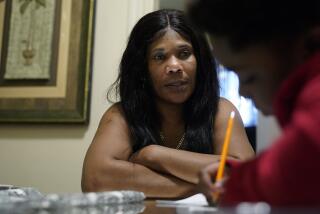Hold Parents Liable for Learning
- Share via
Now it starts to get ugly. Our tragic failure rate--that half of our students can’t pass--finally makes front-page news.
Teachers, however, know it’s been ugly for a long time. For years at many schools, a failure rate of 50% or worse has been standard. Standard too is the rhetoric that invariably follows such statistics: If only we had more qualified teachers. If only the teachers would meet the demands of the curriculum. If only the teachers tried harder and cared more about our children.
In short, it is not the children but the teachers who are failing. We work off a basic assumption that teachers are the key factor, and if we can fix them, we fix the education crisis. News flash: Teachers are not the key factor.
The key factor is the proverbial elephant in the living room that no one dares talk about: poor parenting. When was the last time you saw or read something faulting parents for the education crisis?
In the hope of making a difference, however, here are some workable suggestions.
The first step is a mandatory parent orientation. As the system is now, a parent can come down to the school once, register and never come again. The fostered attitude is “just drop off your child, and we’ll do the rest.”
This would change. To register a child, a parent would be required to attend sessions on the school, its staff, its policies, goals and expectations. Can’t be bothered? Just too busy? Then the child can’t come to school.
Additionally, parents’ participation would be ongoing: At least three hours a month would be required of a parent or guardian of an attending child, at times convenient for the parent. There is plenty of need for campus beautification and repair, for tutoring, yard teachers and hall duty.
Furthermore, parents would be required to pay for their children’s missed school and/or failure. School would be free only as long as Johnny is attending and passing. Missed classes or unexcused days would require parents to pay either in money or more volunteer time.
What if parents refuse? This would no doubt occur, as it is clear that some parents have no interest in their children’s schooling beyond a baby-sitting and meal service. Let us admit to admit what so many other countries and cultures already admit to themselves: School is not for everyone.
We Americans are fond of saying that we don’t want the government running our lives. We know what is best for our children; don’t tell us how to raise them. Fine. Let’s make education optional. Instead of an obligation, make education a privilege that must be earned. Families that don’t want to make the commitment need not do so.
In the meantime, let us end social promotion. Let us continue to demand that our teachers meet high standards and be held accountable. At the same time, let us stop pretending that teachers alone can educate children. Most important, let us demand that parents take some real responsibility in the education of our children.





